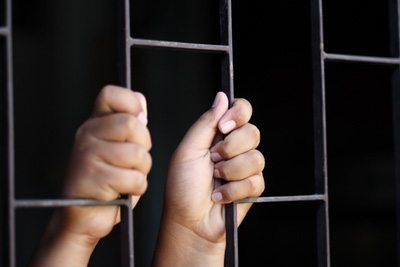Are Pregnant Women Persons After 20 Weeks’ Gestation?
With 20-week abortion bans, far more than abortion is at stake. These measures establish legal principles that will be—and, indeed, already have been—used to justify arrests of and forced medical interventions on pregnant women.

Each year, six million women in the United States become pregnant. Approximately four million women go to term, one million have abortions, and nearly one million experience pregnancy losses, including thousands of stillbirths that occur after 28 weeks of pregnancy. All of these women are at risk when legislators attempt to establish a point in pregnancy when women may be deprived of their civil and human rights.
In June, the U.S. House of Representatives passed a bill banning abortions after 20 weeks; last week, a similar bill was introduced in the U.S. Senate. In July, Texas became the 13th state to pass such a ban, and on November 19 the citizens of Albuquerque, New Mexico, will get to vote on a ballot measure that would impose such a ban.
These measures typically define “unborn children” as existing from the moment of fertilization, and all prohibit a woman from having an abortion after 20 weeks, even if her health depends on it. But far more than abortion is at stake; these measures establish legal principles that will be—and, indeed, already have been—used to justify arrests of and forced medical interventions on pregnant women.
This past March, grassroots birthing rights activists reached out to our organization, National Advocates for Pregnant Women (NAPW), seeking help on behalf of a frightened pregnant woman who was well past 20 weeks in her pregnancy. The reason for her fear was straightforward: Her doctor had emailed her, threatening her with arrest if she did not report to the hospital immediately for cesarean surgery. The doctor’s letter read, in part:
I would hate to move to the most extreme option, which is having law enforcement pick you up at your home and bring you in but you are leaving the providers … no choice. If I do not hear that by this afternoon you have presented to [the hospital] prepared for delivery, this pathway may be chosen.
Although NAPW was able to intervene in time and persuade the doctor and hospital to withdraw this grossly inappropriate and legally unjustified threat, such threats are being made with surprising frequency. NAPW has fielded calls for help from women in Pennsylvania, South Carolina, and Texas who, late in their pregnancies, were threatened with court orders or other state action if they did not give up their rights to medical decision-making, bodily integrity, and health and submit to unnecessary cesarean surgery.
These are not idle threats. In fact, some women who have refused cesarean surgery or rejected advice to be hospitalized late in pregnancy have been taken prisoner and forced to submit to highly invasive medical and surgical procedures. The justifications for such actions have everything to do with the principles that would be established by laws banning abortions after 20 weeks. One Florida federal district court has already (wrongly) ruled that if states may outlaw abortion at some point during pregnancy and force a woman to carry an unwanted pregnancy to term, then surely the state can also force a woman to undergo major medical procedures to deliver the child she “affirmatively desires to have.”
In addition, post-20-week abortion bans have far-reaching implications for women who experience stillbirths. Increasingly, prosecutors are arguing that if states may force a woman to carry her pregnancy to term, then states should also be able to punish her when she fails to do so. In Mississippi, a teenager who experienced a stillbirth after 20 weeks of pregnancy was charged with a crime called “depraved heart homicide.” In Indiana, Bei Bei Shuai, in an act of desperation, attempted suicide when she was 33 weeks pregnant. She survived, but her baby did not. As a result of her suicide attempt while pregnant, Shuai was incarcerated without bail for more than a year on charges of attempted feticide and murder of a viable fetus.
These are not isolated incidents. In an article published earlier this year in the Journal of Health Politics, Policy and Law, we document more than 400 cases involving the arrests and detentions of—and forced medical interventions on—pregnant women taking place between 1973 and 2005. Since 2005, we have documented more than 300 additional cases.
Our research finds little direct legal authority for these actions. Rather, prosecutors, hospital lawyers, and arresting officers rely on laws like the one being voted on next week in Albuquerque and those already passed in 13 states. They claim that if the state may protect the unborn by depriving pregnant women of their rights in the abortion context, consistency requires that pregnant women be deprived of their rights in all contexts, including birth and pregnancy loss.
These cases press home the need for abortion opponents and supporters alike to oppose these bans and secure society’s commitment to the fundamental principle: that a woman is a person with civil and human rights throughout her pregnancy. Before and after 20 weeks. Always.
